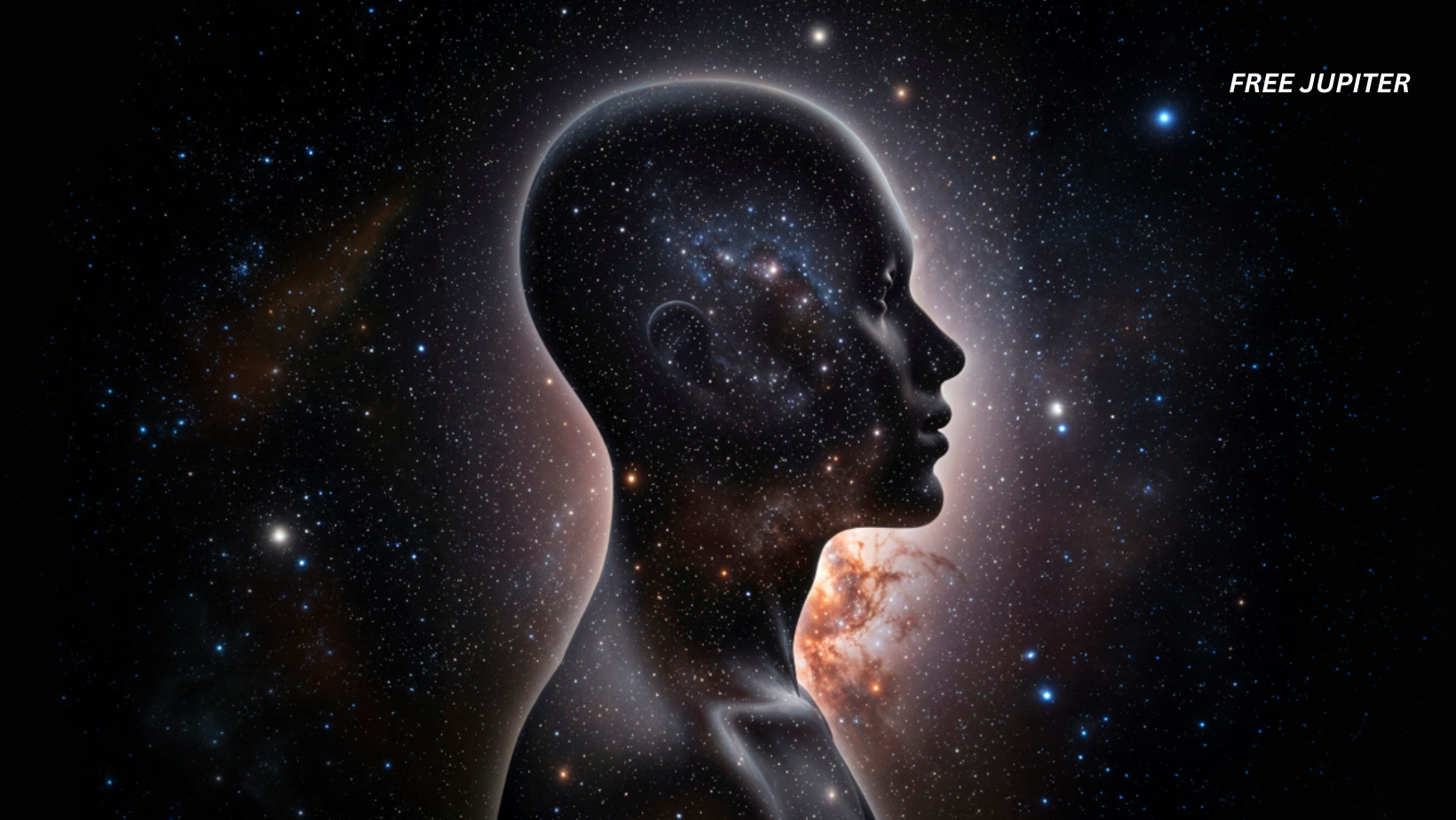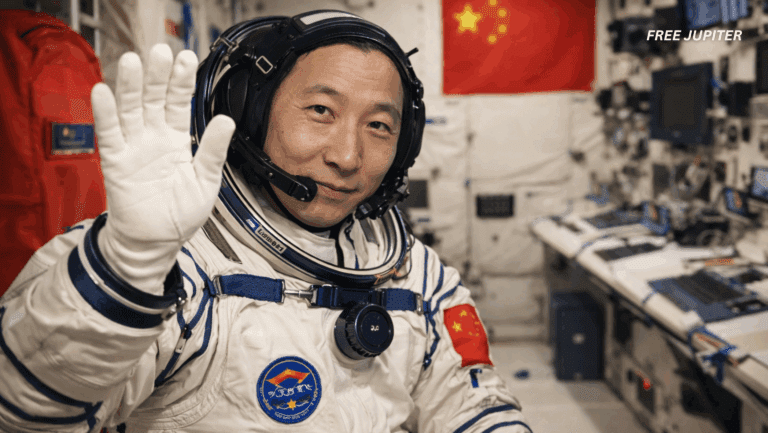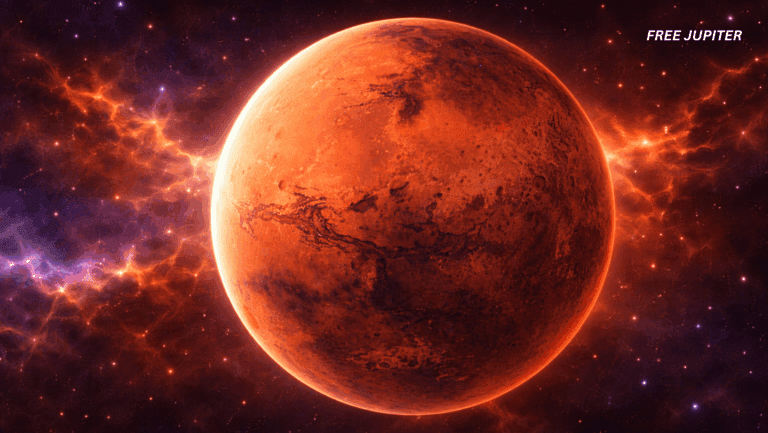Friendly Note: FreeJupiter.com shares general info for curious minds 🌟 Please fact-check all claims—and always check health matters with a professional 💙
Imagine your thoughts echoing beyond your body, woven into the very fabric of the cosmos. But as it turns out, some scientists believe this might be more than just an imaginative daydream. Emerging research suggests that human consciousness could be a quantum phenomenon—one that connects us to the universe in ways we’re only beginning to understand.
What Is Consciousness, Really?
First, let’s define the mystery. Consciousness is your inner awareness—your ability to think, feel, reflect, and experience the world. Despite all the technology and brain scans we’ve developed, no one can fully explain how consciousness arises from the physical brain. This mystery is so baffling, scientists call it the “hard problem of consciousness.”
We know that neurons communicate via electrical signals. But is that all there is to being conscious? Or is there something more—a deeper, less tangible force at play?
That’s where quantum theory enters the picture.
The Quantum Leap: Orch OR Theory and Microtubules
One of the most intriguing ideas comes from a theory called Orch OR, short for Orchestrated Objective Reduction. It was proposed in the 1990s by theoretical physicist Sir Roger Penrose and anesthesiologist Dr. Stuart Hameroff. They suggested that consciousness isn’t merely a byproduct of neuron activity—but may emerge from quantum events happening inside brain cells.
More specifically, they point to microtubules, microscopic tube-shaped structures found within neurons. These microtubules help cells maintain their shape and transport vital substances. However, Hameroff and Penrose believe these tiny tubes might also serve as quantum processors—operating on the same bizarre principles that govern subatomic particles.
In quantum mechanics, particles can exist in multiple states at once (superposition), and they can influence each other instantly across distance (entanglement). If microtubules truly function this way, then your consciousness might not be completely confined to your brain. It might be entangled with the wider universe.
Read more: Scientists Say Life Once Thrived on Mars—Then Caused Its Own Extinction
But Wait—Isn’t the Brain Too Warm for Quantum Stuff?
That’s been the main criticism of Orch OR: quantum phenomena are notoriously fragile. They’re typically observed in highly controlled environments—like near absolute zero in physics labs—not in the warm, squishy, and constantly active environment of a human brain.
But recent studies are challenging this assumption.
In 2022, researchers at MIT and other institutions conducted simulations showing that quantum coherence could persist inside biological systems for longer than previously thought. Some even demonstrated that photosynthesis in plants and the navigation systems of birds might rely on quantum effects.
These findings opened the door to the idea that the human brain could also host quantum processes, particularly in the stable, protected interiors of microtubules.
And as more experimental techniques develop, scientists are finding evidence that microtubules can hold coherent quantum states—even under warm and noisy conditions like those inside the brain.
Consciousness as a Cosmic Connection
If all of this sounds wild, it gets even more mind-expanding.
Theoretical physicist Timothy Palmer has proposed a concept he calls Invariant Set Theory. He suggests that consciousness may arise from a fractal-like geometric structure in the universe—a kind of cosmic “state space” where every possibility exists in a patterned, interconnected way.
Think of it like this: the universe might operate on a deeply complex blueprint, one that consciousness taps into like a radio tuning into a specific frequency. In this model, our sense of awareness, intuition, even free will might not just be chemical illusions—they could be reflections of a deeper order that links us to everything else.
In other words, your mind might be tuned to the universe in ways science is just beginning to measure.
Other Theories That Echo the Same Idea
The idea that consciousness might be more than just a byproduct of brain activity isn’t new, and it certainly isn’t isolated to the quantum realm. Across philosophy, neuroscience, and physics, multiple theories have emerged—each circling the same cosmic question: Could our consciousness be rooted in something much deeper, more universal, and more fundamental than the brain alone?
Here’s a closer look at some of the most intriguing theories that resonate with this idea:
Read more: Going to Bed Without Eating Could Supercharge Your Memory, Scientists Say
1. Panpsychism: When Everything Has a Mind, Sort Of
Panpsychism sounds like a word you’d make up during a Scrabble game, but it’s actually one of the oldest philosophical theories around—and it’s making a modern comeback in scientific circles.
At its core, panpsychism suggests that consciousness isn’t unique to humans, animals, or even living beings. Instead, it’s a fundamental feature of the universe itself. Just as gravity or electromagnetism exists everywhere, so too might a very basic form of awareness.
Under this view, everything—from electrons to trees to galaxies—has a tiny speck of consciousness. Not the kind that writes poetry or dreams about pizza, of course, but a rudimentary “experiential quality” that becomes more complex as systems grow more integrated, like in human brains.
Notable advocates of panpsychism include philosopher Galileo Galilei (yes, that one!)—who speculated on the nature of mind centuries ago—and modern thinkers like Philip Goff, who argues that this theory might elegantly solve the “hard problem of consciousness” by removing the need for it to magically emerge from dead matter.
2. Integrated Information Theory (IIT): Consciousness as a Data Web
Invented by neuroscientist Giulio Tononi, Integrated Information Theory (IIT) aims to explain not only what consciousness is, but why certain systems—like the human brain—have it while others (like your coffee mug) probably don’t.
IIT proposes that consciousness arises from a system’s ability to integrate information in a unified, complex way. The more interconnected and differentiated the system, the richer the conscious experience it can produce.
Imagine consciousness as a tapestry made of information threads. A simple system, like a light switch, has only a couple of threads. A human brain, on the other hand, weaves billions of threads into a dazzling, complex pattern. That’s what gives rise to subjective experience—or as IIT calls it, “Φ” (phi), a measure of consciousness.
So… What Does This Mean for You?
If these theories turn out to be true, they could transform how we understand our place in the universe. Consciousness wouldn’t just be something that “happens” in your brain—it could be a ripple in a much larger field, one that connects you to every particle, every star, every moment in time.
Even if this connection can’t yet be measured precisely, it’s a poetic and awe-inspiring idea. It hints that your thoughts, dreams, and experiences might have more significance than we ever imagined—not just for you, but as a thread in the cosmic tapestry.
Read more: Scientists Just Used CRISPR Gene Editing to Reverse the Root Cause of Down Syndrome
The Final Word (For Now)
Of course, it’s important to keep a healthy dose of skepticism. The science is still evolving. These ideas are far from proven, and many neuroscientists remain cautious. After all, consciousness is one of the greatest puzzles we’ve ever faced—and quantum mechanics isn’t exactly known for being straightforward.
But the fact that researchers from physics, neuroscience, and even philosophy are now working together to explore these connections is, in itself, exciting. We may be inching closer to understanding not only how we are conscious, but why we feel connected to something greater than ourselves.
So the next time you gaze at the night sky and feel a strange sense of belonging—who knows? You might not just be imagining it. You might be tapping into something truly universal.










